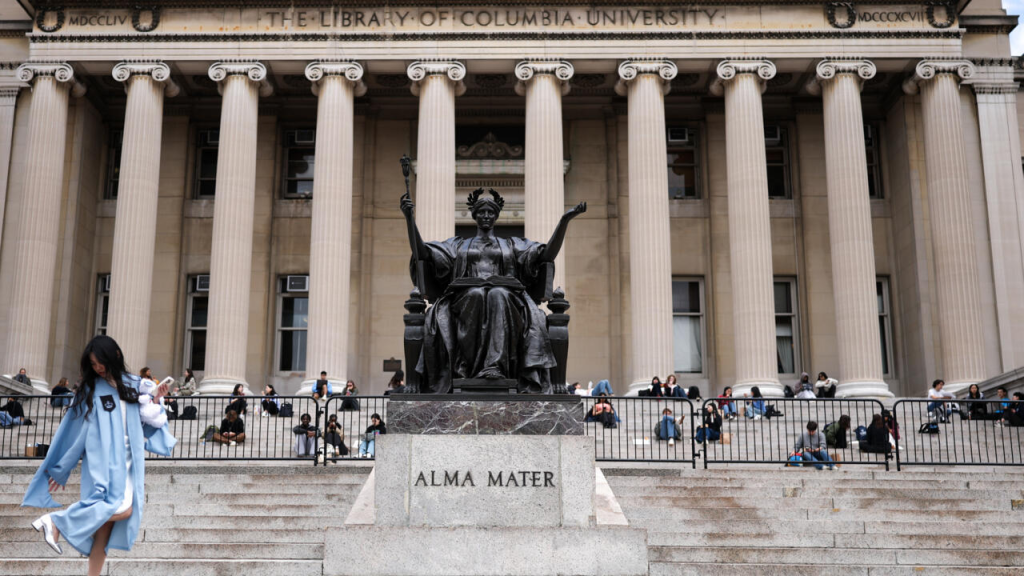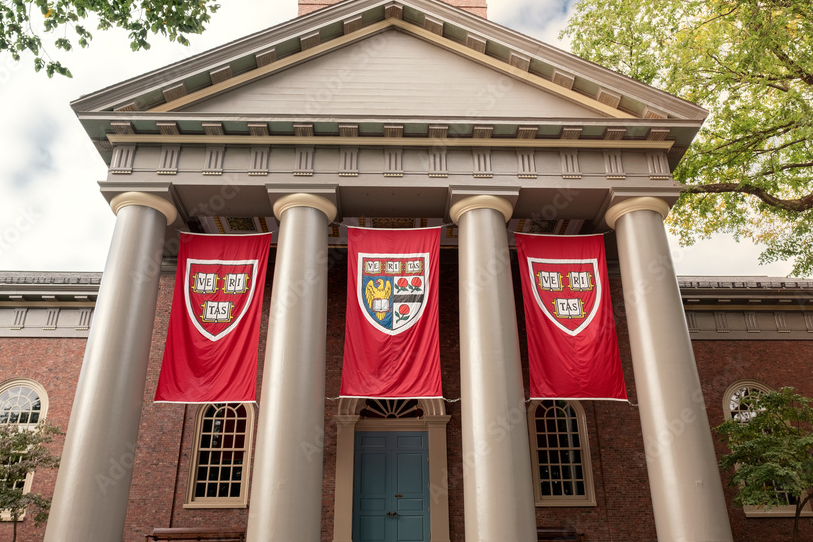The University of Pennsylvania is a globally renowned Ivy League institution celebrated for blending academic rigor with real-world impact. Known for its interdisciplinary approach, entrepreneurial spirit, and commitment to innovation, Penn empowers students to be future-ready leaders in every field.
Founded by Benjamin Franklin, Penn continues to embody his vision: a practical, inclusive, and forward-thinking education that serves society.

Why Choose University of Pennsylvania?
Here’s why thousands of ambitious students around the world set their sights on Penn:
| Feature | Details |
|---|---|
| Global Ranking | 12th worldwide (QS 2025) |
| Student Population | Around 23,000 students (undergraduate + graduate) |
| Campus | Philadelphia, Pennsylvania |
| Ivy League | Founding member |
| Graduate Employability | Top-ranked for careers in business, tech, healthcare, and public policy |
| Research Excellence | Pioneering research in business, medicine, education, AI, and neuroscience |
Entry Requirements for International Students
Penn evaluates applicants holistically – academics, leadership, essays, and creativity all play a role.
Undergraduate Programs at University of Pennsylvania
| Requirement | Details |
|---|---|
| Academic Qualification | 90–95%+ in Class XII (CBSE/ISC/State Boards) or equivalent |
| English Proficiency | TOEFL iBT 100+ / IELTS 7.5+ (recommended) |
| Standardized Tests | SAT/ACT optional (test-flexible policy) |
| Essays & Recommendations | Common App + Penn-specific supplements + 2 teacher LORs |
| Extracurricular Profile | Leadership in activities, initiative, and intellectual depth |
Postgraduate Programs at University of Pennsylvania
| Requirement | Details |
|---|---|
| Academic Qualification | Bachelor’s degree with First Class (75–85%+) |
| English Proficiency | TOEFL iBT 100+ / IELTS 7.5+ |
| GRE/GMAT | Required for some programs (e.g., Wharton MBA, Engineering, PhD) |
| Work Experience | Recommended/required for MBA, Public Health, Social Work, etc. |
| Research Proposal | Needed for research programs (e.g., PhDs) |
Application Process to University of Pennsylvania
| Step | Details |
|---|---|
| Research Courses | Explore Penn’s 12 schools, including Wharton, SEAS, and GSE |
| Prepare Documents | Transcripts, SOP, LORs, test scores, resume, passport |
| Apply Online | Via Common App (UG) or program-specific portals (PG) |
| Pay Fees | $75 (UG) / varies for PG |
| Interview | By invitation (mostly for PG or Wharton MBA) |
| Offer Letter | UG in late March / PG varies by school |
| Accept Offer | Confirm and prepare financials + visa |
| Apply for Visa | F-1 visa via nearest U.S. Embassy or Consulate |
Required Documents Checklist
| Document | Undergraduate | Postgraduate |
|---|---|---|
| Academic Transcripts | Yes | Yes |
| Statement of Purpose | Yes (essay) | Yes |
| Letters of Recommendation | 2 | 2–3 |
| English Test Scores | Yes | Yes |
| Passport Copy | Yes | Yes |
| CV/Resume | Optional | Often Required |
| Portfolio | Required for design/arts | Required for creative program |
Key Deadlines at University of Pennsylvania
| Intake | Application Opens | Deadline |
|---|---|---|
| Fall Intake (UG) | August (previous year) | Jan 5 (RD) / Nov 1 (ED) |
| Rolling (PG) | Varies by school | Typically Dec–Feb |
Important Dates for 2025 Entry at University of Pennsylvania
| Event | Date |
|---|---|
| UG Regular Decision Deadline | January 5, 2025 |
| PG Application Deadlines | December 2024 – February 2025 |
| Financial Aid Deadline | February 2025 |
| Visa Documentation (I-20) | May–June 2025 |
| Course Start (Main Intake) | August–September 2025 |
Popular Courses at Penn
| Course | Duration | Annual Tuition Fee (USD) |
|---|---|---|
| Bachelor of Arts/Science (UG) | 4 years | $68,000 |
| MBA (Wharton School of Business) | 2 years | $87,000 |
| Master in Computer & Information Tech (MCIT) | 2 years | $43,000 |
| Master of Public Health (MPH) | 2 years | $49,000 |
| JD (Penn Carey Law School) | 3 years | $74,000 |
| Master of Education (M.Ed.) | 1–2 years | $38,000–$50,000 |
Scholarships for International Students
| Scholarship Name | Amount (USD) | Eligibility Criteria |
|---|---|---|
| Penn’s Need-Based Aid (UG) | Up to 100% | Demonstrated financial need |
| Graduate Fellowships | Partial–Full | Merit and need-based (varies by department) |
| Wharton Fellowships | Partial–Full | Merit-based for MBA students |
| External Scholarships | Varies | Fulbright, Inlaks, DAAD, Tata, etc. |
Student Life & Support at Penn
| Feature | Details |
|---|---|
| Accommodation | On-campus housing available for UG & PG students |
| Part-Time Work | Up to 20 hours/week on campus |
| Student Societies | 450+ student groups, from consulting clubs to music & debate |
| Career Services | Resume workshops, job fairs, career treks, employer networking |
| Health & Wellbeing | Penn Wellness, Student Health Service, CAPS counseling |
| International Support | ISSS (International Student & Scholar Services) for visa and cultural support |
Need Personalized Help?
Getting into Penn takes preparation and insight. With the right guidance from experienced mentors like those at Admitix, you can navigate the process confidently.
Start your Penn journey today!
FAQs – University of Pennsylvania
Is UPenn hard to get into?
Yes. Penn is highly competitive, with an undergraduate acceptance rate of around 5.8%.
Is UPenn the same as Penn State?
No. University of Pennsylvania is a private Ivy League school; Penn State is a public university.
Does UPenn offer need-based aid to internationals?
Yes. Penn offers generous need-based financial aid to all admitted students, regardless of citizenship.
Can I apply without SAT/ACT scores?
Yes. Penn has a test-optional policy for undergraduate applicants.
Do I need a portfolio for design or art programs?
Yes, for majors in fine arts, architecture, or digital media. Check specific school guidelines.


















